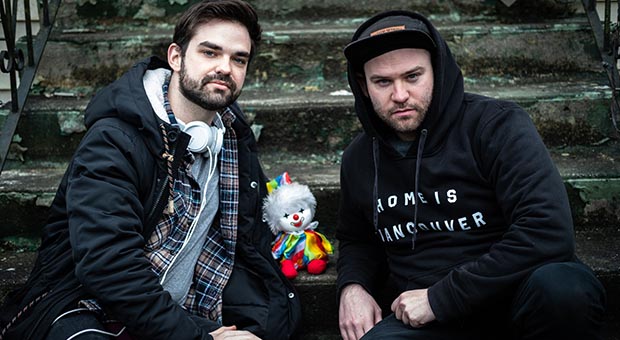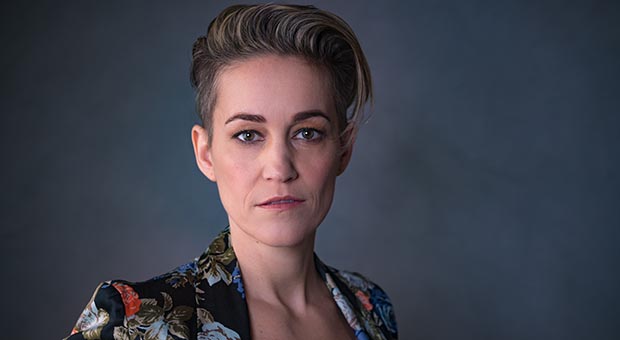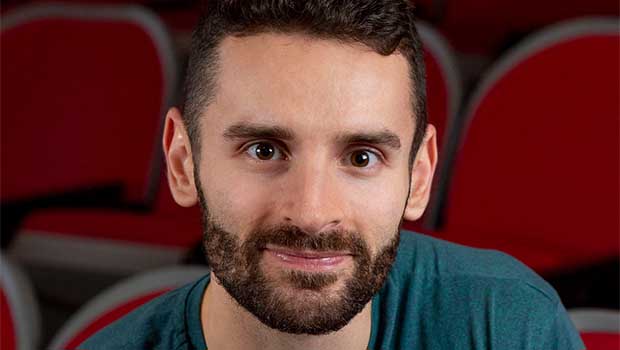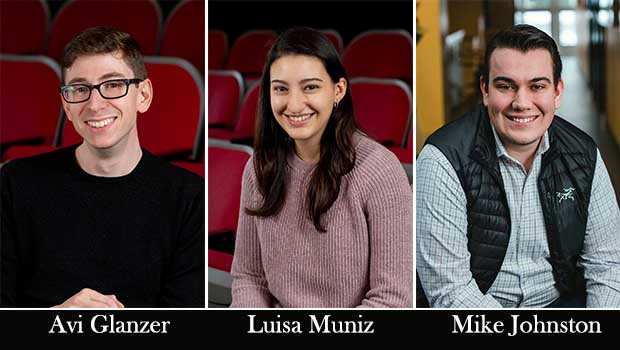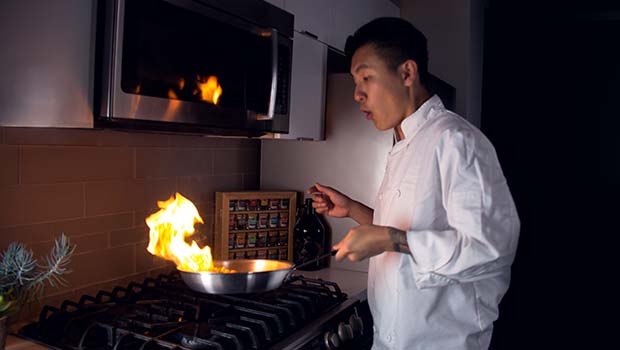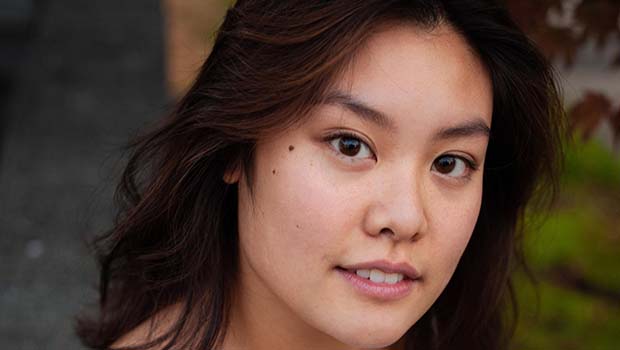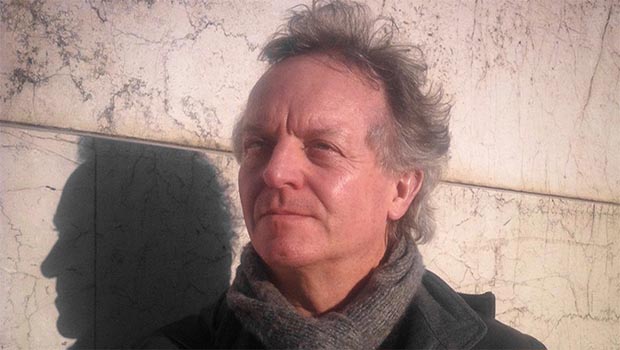
04 Mar The Biz Interview: Peter Lynch
In a story told through surveillance, memories and flashbacks, ex-cop Sheila Hood (Kathleen Munroe) is being interrogated by her former partner Calvin (Benjamin Ayres) about two deaths. Sheila’s husband, Tom (David Alpay), an ornithologist, had been having an affair with his ex-girlfriend, Merle James (Melanie Scrofano), whose fragile beauty echoes that of the birds he studies. Sheila hides surveillance cameras in her home to watch his transgressions and ultimately becomes a voyeur of her own life.
This is the set-up for Birdland, a noir thriller from Canadian director Peter Lynch which starts its Vancouver run at the Cinematheque on March 6th with a series of special moderated screenings with Peter Lynch in attendance.
March 6th at 7:00 pm with Mina Shum.
March 9th at 3:30 pm with Bruce Sweeney.
March 11th at 2:00 pm with Carl Bessai.
We talked to Peter Lynch to find out more about the film.
________________________________
Can you start by telling us a little bit about how you got started as a director?
Before I became a director, I had just produced a large video new media festival called Video Culture International that featured the best in the world of video art installations, CGI music videos, use of new media in moviemaking, new directions in technology and storytelling. During this time, I would often invite people I admired like Bill Viola or Brian Eno or people from Lucasfilm and Francis Ford Coppola’s company, American Zoetrope and these people came to my festival to present projects and in a way became mentors for me. After that, I started out doing little documentary portraits and music videos until I made my first dramatic short, Arrowhead, which launched my career and which led to Project Grizzly, etc.
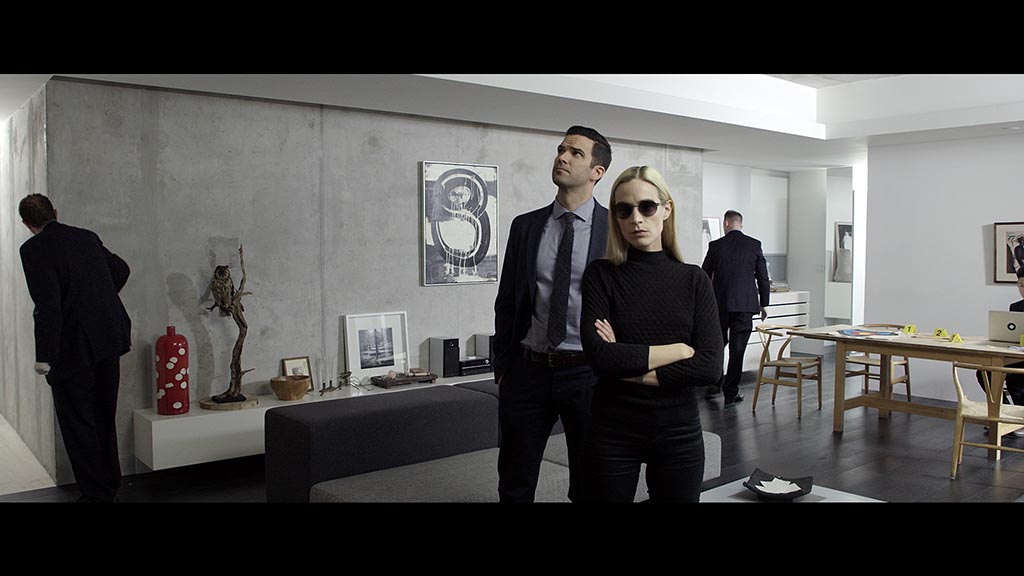
Birdland is your newest release. What can you share about this experience?
Making low-budget films in Canada takes a village and calling in a lot of favours and the help of friends. I had visual artists getting me access to locations like the TD Bank towers, an architect gave me access to his condo, the ornithology department at the ROM got me access to their bird collection and to let me shoot at the museum. Also what has changed dramatically is how the web has become such a part of promoting a film and the face of traditional media has totally changed. Having been around for a while in the industry helped me in terms of connections to get advice and deals, etc.
________________________________
________________________________
What can audiences expect from the film?
Birdland is an unconventional portrait of a marriage told through the lens – through surveillance. It also subverts the murder mystery genre and turns it inside out. It is a film that depends on the audience’s active participation in the film and story. It is a story that completely blurs the lines between what is surveilled and what the inner reality of the main character is. I always knew Birdland would be a polarizing film which divides viewers into two camps – those that find it sexy, compelling, dream-like, and new and those want a more traditional plot-driven story with typical characterizations. Birdland doesn’t rely on too many mainstream narrative contrivances. Expecting too much conventional plot can cause one to overlook some of the film’s deeper visual correspondences about the main character’s identity. The mood and atmosphere reflect the mood and anxieties of our time.
I feel Birdland is more about creating an allegory. Therefore, I am more interested in bringing out the story behind the story. Our lead character is constantly shifting her various personas and the film asks the audience to question the idea of what is real. It’s about about an individual’s struggle to tell her own story and reinvent herself as she confronts darker forces of life and her marriage.
What was the biggest challenge in making the film and how did you overcome it?
The biggest challenge making the film was to shoot a complex post-noir story in sixteen days of principal photography – also maintaining a high production value throughout the film with such a tight budget.
To overcome this, it meant putting in long hours and developing a visual language for shooting the film in a few takes and to work with the actors to create their world through a lot of prep, in terms of talking about how we wanted to portray the characters in a film. The characters are everything – they are your special effects, so to speak.
In terms of the look we wanted to use, the city is a character too and (we had to) create a Toronto noir atmosphere and tone. I was very ambitious in going after and securing great locations that could help the production designer build on and (give) the director of cinematography something cool he could light. New camera technology has helped with shooting in low light situations that in the past would have cost a ton of money to light, etc., so that helped too. Also, I had very strong creative keys in each department of the filmmaking process who really helped maintain the strengths of the material and minimize its limitations.
________________________________
“Things are rarely perfect, so use the weapons at hand and surround yourself with the best people possible.”
________________________________
What was the most rewarding part of this project for you?
The most rewarding part of the project is seeing what you created on the page starting to come to life and to see all your collaborators bringing their talents to helping you realize your vision. So from the script, the production design, and the cinematography getting the project to the next level, my favourite part is the editing because that’s where you can really shape the film and I get to work with my wife and central collaborator Caroline Christie, who has edited all my films.
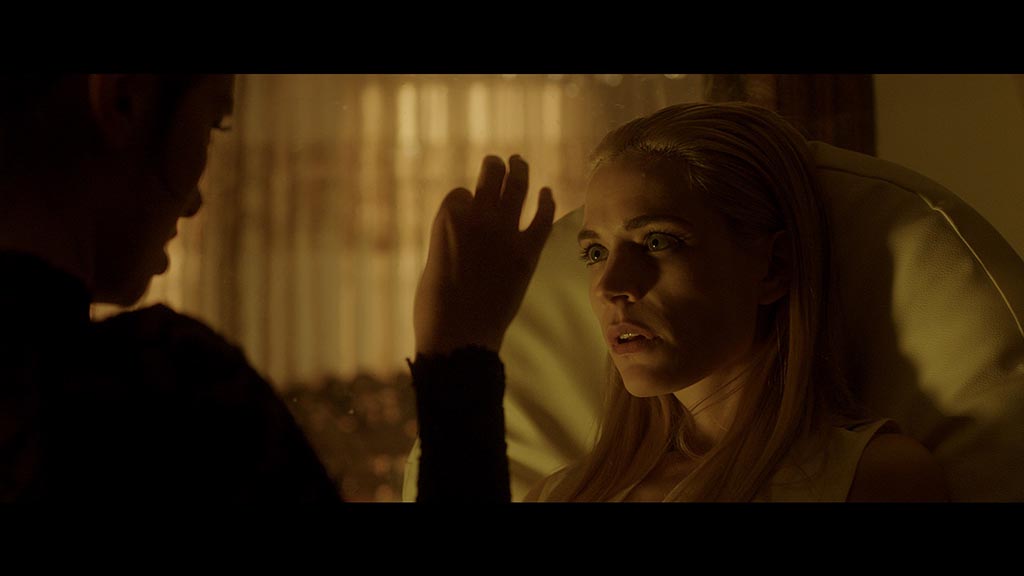
What’s the most important advice you’ve received in your career?
Things are rarely perfect, so use the weapons at hand and surround yourself with the best people possible.
Also to be bloody-minded and never give up.
What books and authors have been influential in your directing career so far?
In terms of novels, there are so many but in terms of influence, I would say Joseph Conrad’s Heart of Darkness, Herman Melville’s Moby Dick, Mark Twain’s Huckleberry Finn, Miguel de Cervantes Saavedra’s Don Quixote. In terms of books on film, the biggest bible on filmmaking has been Hitchcock: The Definitive Study – a 1966 book by François Truffaut about Alfred Hitchcock. The critic Kent Jones recently made it into a documentary.
What other projects are you working on right now?
I’ve got three or four projects on the go. One is based on Paul Quarrington’s Galveston, which is about storm chasers. We’re in the stage of trying to attach a cast to it
I (also) started shooting an experimental jazz movie with Bruce McDonald, which is called A Love Supreme.
________________________________
Thanks to Peter Lynch for speaking with us!
Birdland plays at the Cinematheque on March 6th, 9th, 11th and 17th. Tickets are $12 and are available online at Eventbrite.ca.


